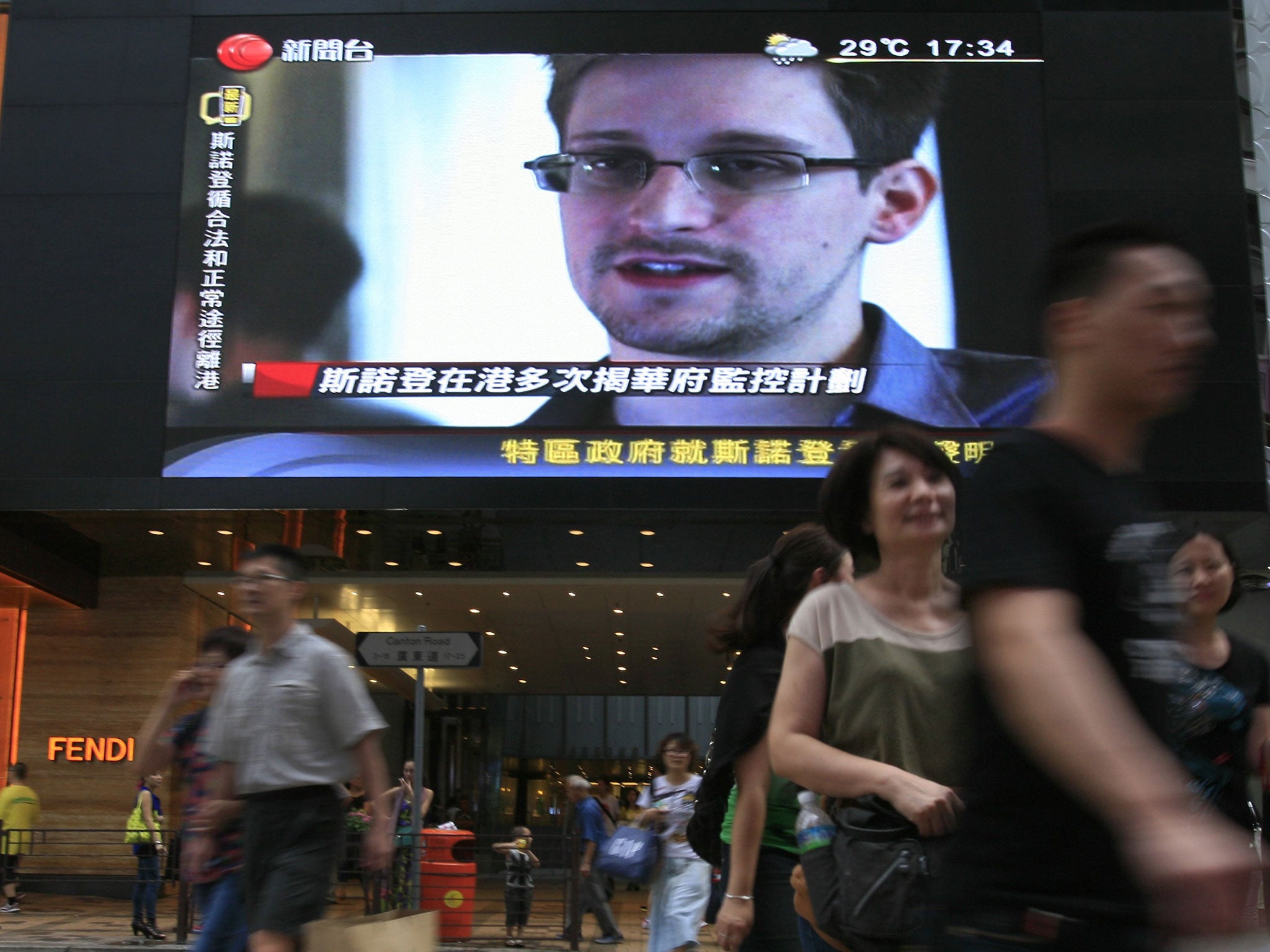Vladimir Putin confirms Edward Snowden is still in Moscow airport and blocks US extradition demands, as Venezuela says it would consider asylum request
Russian President says former CIA employee remains a free man, and the sooner he chooses destination the better

Your support helps us to tell the story
From reproductive rights to climate change to Big Tech, The Independent is on the ground when the story is developing. Whether it's investigating the financials of Elon Musk's pro-Trump PAC or producing our latest documentary, 'The A Word', which shines a light on the American women fighting for reproductive rights, we know how important it is to parse out the facts from the messaging.
At such a critical moment in US history, we need reporters on the ground. Your donation allows us to keep sending journalists to speak to both sides of the story.
The Independent is trusted by Americans across the entire political spectrum. And unlike many other quality news outlets, we choose not to lock Americans out of our reporting and analysis with paywalls. We believe quality journalism should be available to everyone, paid for by those who can afford it.
Your support makes all the difference.The Russian President, Vladimir Putin, lifted the two-day shroud of mystery surrounding the whereabouts of Edward Snowden when he confirmed the NSA contractor turned whistleblower is still in the transit zone at Moscow's Sheremetyevo Airport.
Mr Putin said Russia would not extradite Mr Snowden to the US as Washington officials have repeatedly demanded, and denied claims that Russian intelligence agencies are working with Mr Snowden, as the White House claimed on Monday.
"Mr Snowden did indeed arrive in Moscow," said Mr Putin during a news conference in Finland. "For us it was completely unexpected. He came as a transit passenger, and he doesn't need a visa or other documents. As a transit passenger he can buy a ticket and fly wherever he wants."
Mr Snowden has not been sighted since he reportedly stepped off an Aeroflot flight from Hong Kong on Sunday afternoon. He was due to travel to Havana on Monday, but the flight that departed with many journalists on board had an empty seat where Mr Snowden was due to have sat. He has sought asylum in Ecuador, according to the country's Foreign Minister, but how he plans to get there is unclear.
The Ecuadorian ambassador to Russia was seen at Sheremetyevo but it is not clear if he met Mr Snowden, and the lack of confirmed sightings had led some to suspect he had been spirited out of Russia by private jet, or had never arrived in the first place.
Now, Venezuelan President Nicolas Maduro has reportedly come forward to say they will consider offering the fugitive asylum, should the Venezuelan government receive a request for it. “We have not received an official request. But in the event we were to receive one, we would evaluate it as we understand Ecuador is doing similarly,” Maduro said.
Separately, Germany has expressed its concern about allegations of Britain's surveillance programme. The country's justice minister warned Britain that democracy could not flourish when states operated under "a veil of secrecy."
Sabine Leutheusser-Schnarrenberg has written to Justice Secretary Chris Grayling, and the Home Secretary Theresa May, demanding to know which German citizens have been targeted, it was reported last night.
Meanwhile, the WikiLeaks founder, Julian Assange, said on Monday that Mr Snowden was in a "safe place".
Mr Putin's comments seem to end to the speculation for now. "Mr Snowden is a free man, and the sooner he chooses his destination, the better it will be for us, and for him," Mr Putin said.
He also said he would prefer not to deal with the issue of deporting people who claimed to be human rights activists. "It's like shaving a piglet – there is lots of shrieking but little fur."
Earlier in the day, Russia's Foreign Minister, Sergei Lavrov, said it was impossible to extradite Mr Snowden as he had never formally entered Russian territory. Mr Lavrov claimed that the Russians only found out about Mr Snowden's supposed route from Hong Kong to Latin America via Moscow from the media, and that Russia had nothing to do with him or the issues America has with him.
There have been a number of strongly worded calls from US officials to extradite Mr Snowden, and there have even been suggestions that Russia's intelligence services might be debriefing him in Moscow. Mr Lavrov said to accuse Russia of "violation of US laws and even some sort of conspiracy" in the case of Mr Snowden was "absolutely ungrounded and unacceptable".
The US Secretary of State, John Kerry, appeared to tone down his criticism of Russia. "We are not looking for a confrontation," he said. "We are not ordering anybody. We are simply requesting under a very normal procedure for the transfer of somebody."
Join our commenting forum
Join thought-provoking conversations, follow other Independent readers and see their replies
Comments